Everything you need to know about coaching testimonials

What are coaching testimonials?
A coaching testimonial is a recommendation that a happy client provides, usually in the form of text or video. You can use testimonials in your marketing to increase the percentage of people who buy your coaching program, also called improving the conversion rate.
What are some real-world examples?
Coaching testimonials can come as short quotes or extended case studies, and you can present them in different mediums, such as video testimonials. Over the years, we have seen many good and not-so-good examples. Here are two coaching businesses that we think do things right with testimonial marketing:
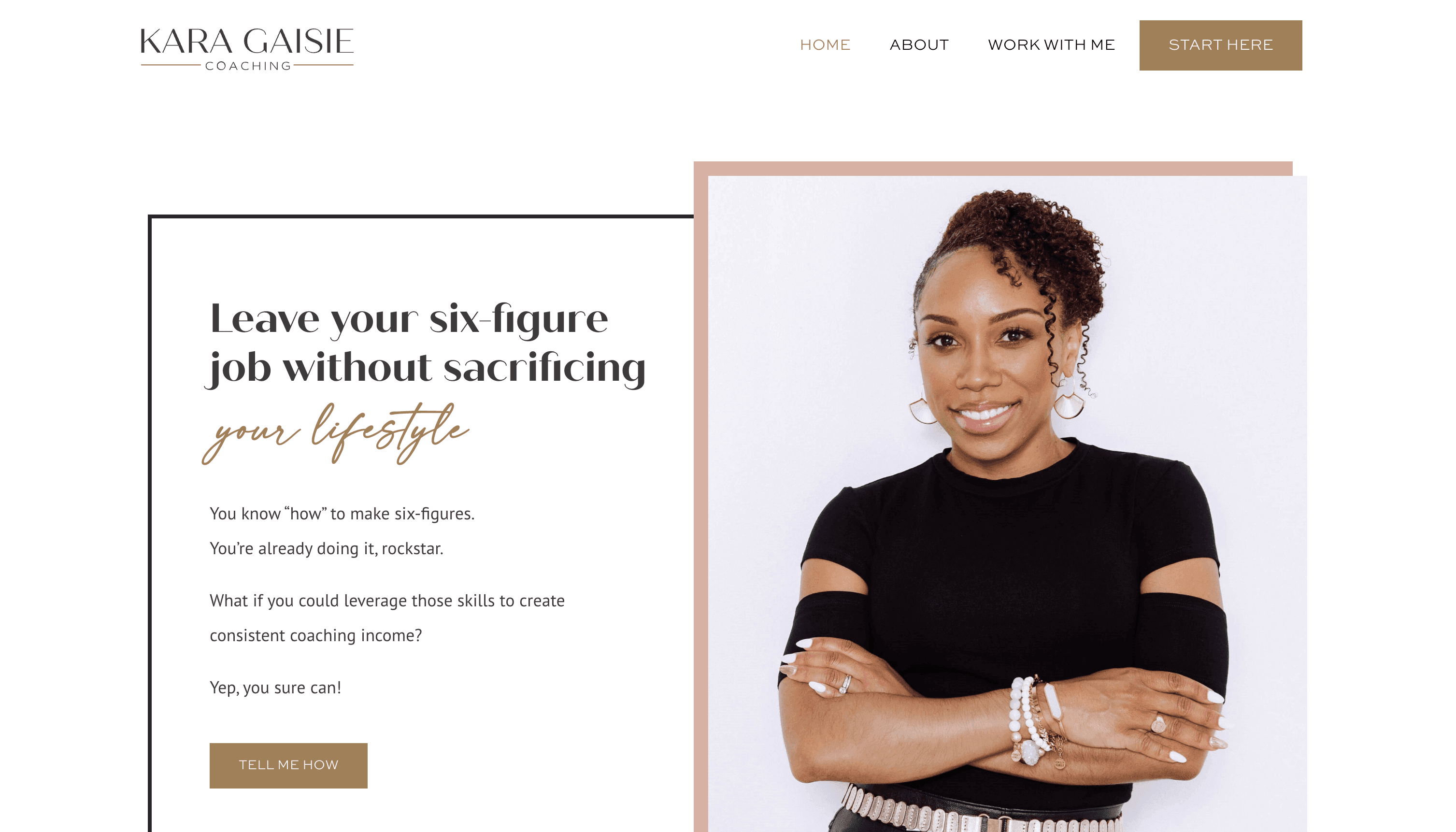
Kara Gaisie Coaching - Kara is a business coach with a crystal-clear target audience: She helps women who want to become life and business coaches themselves with a revenue goal of at least six figures a year.
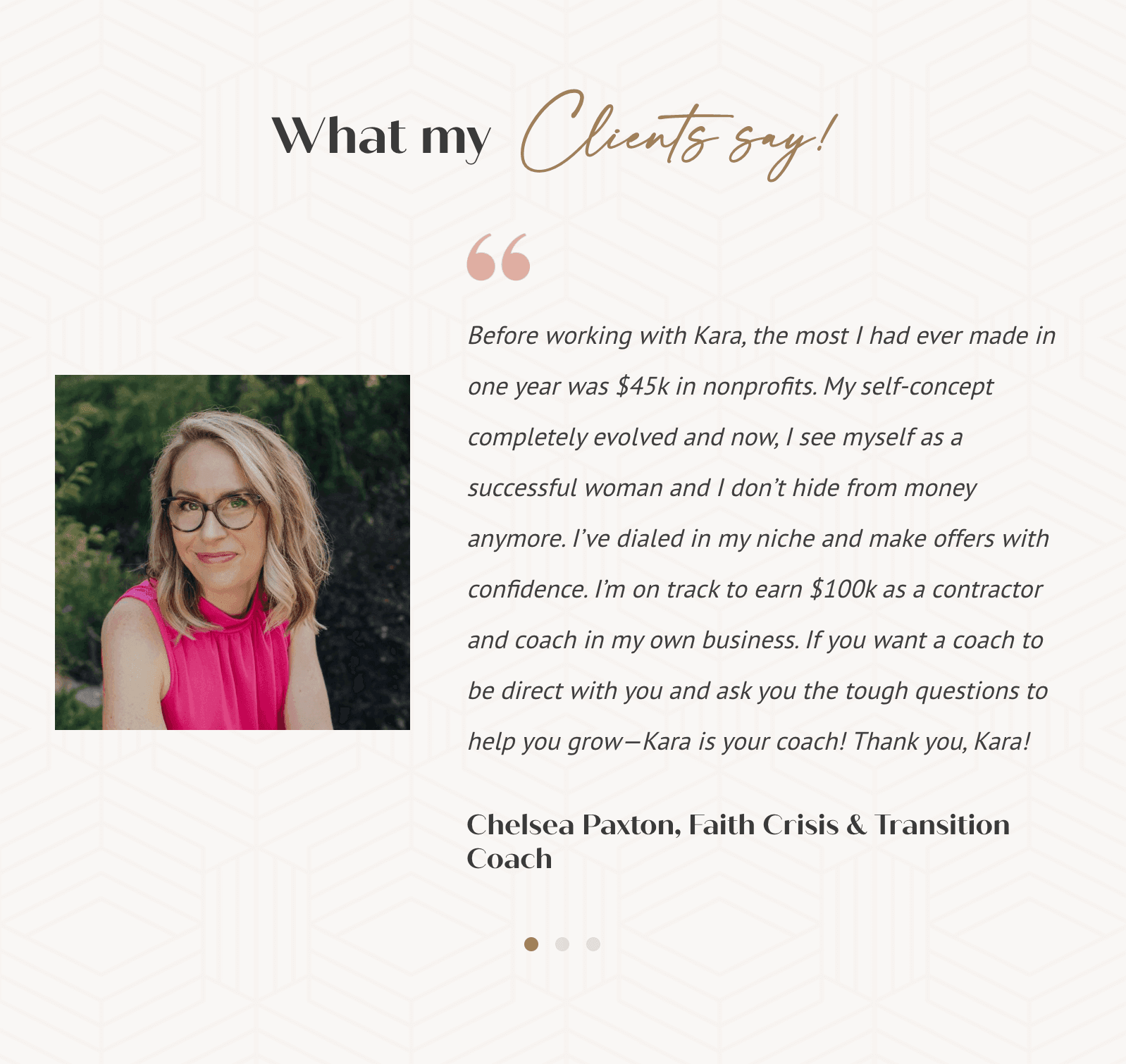
Testimonials on Kara Gaisie's website - You can find a beautifully designed testimonials carousel on her website that showcases some great examples of effectively written testimonials that are specific and authentic.
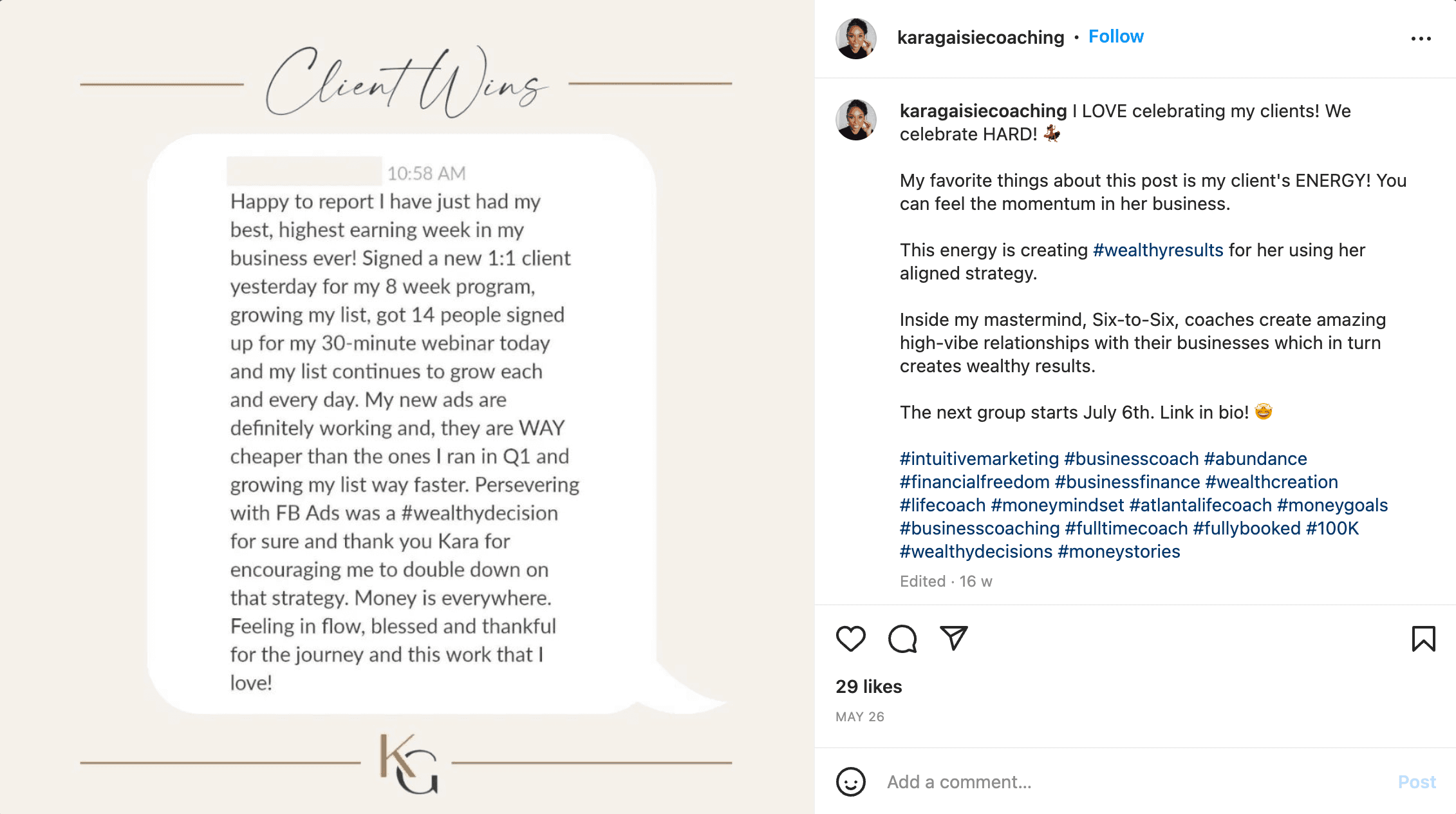
Testimonial on Kara Gaisie's Instagram - Kara also regularly posts coaching client testimonials on her Instagram profile. If you look closely, you can see that it's just a screenshot placed on a template, making it visually appealing and on brand.
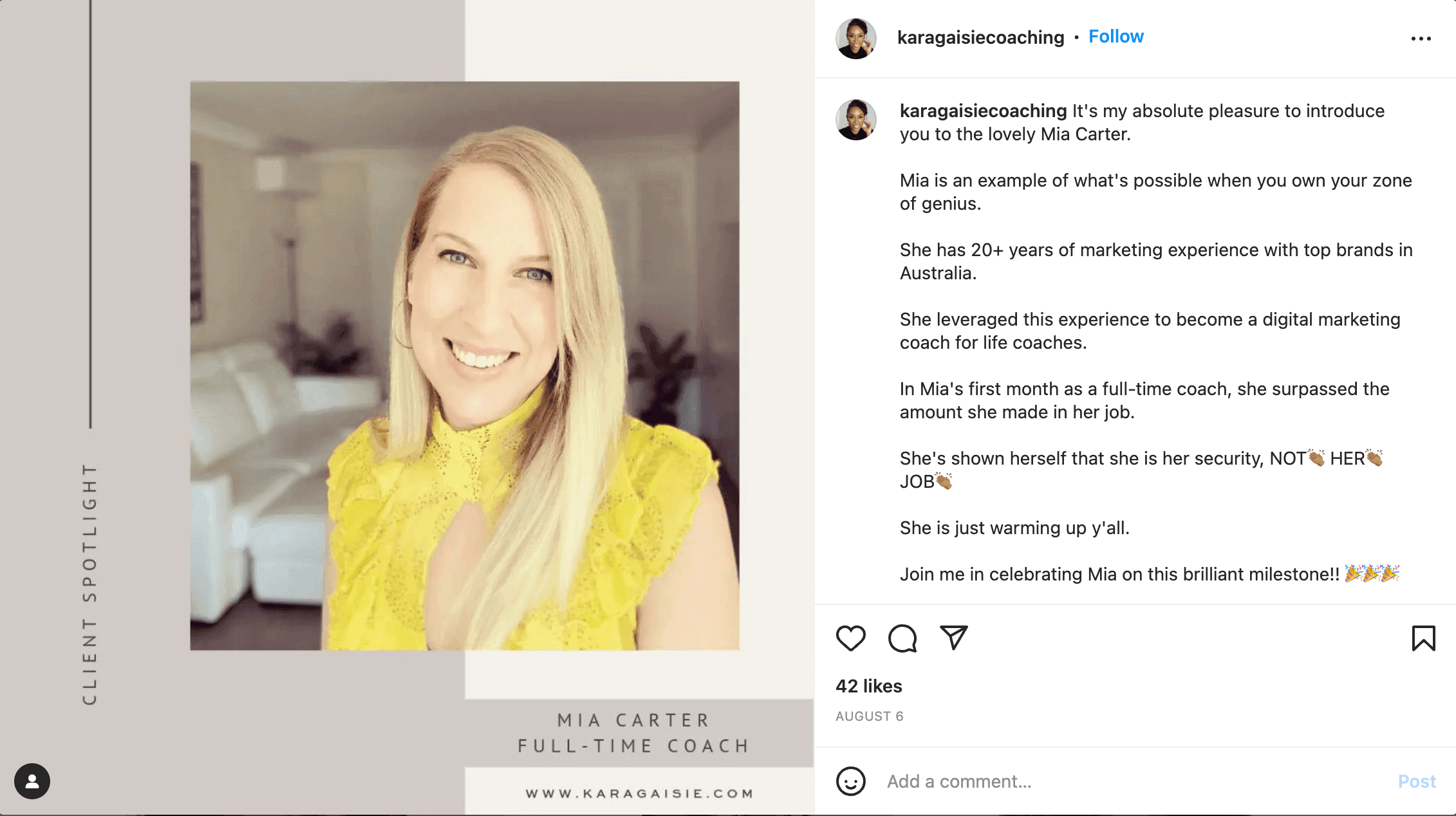
Client spotlight on Instagram – Kara uses a clever method to add more social proof to her social media account: She shines the spotlight on clients who have successfully finished her coaching program.

Dr. Joanna Martin - Let's move to the next coaching business: Joanna is a women's leadership coach, author, and the founder of "One of Many".
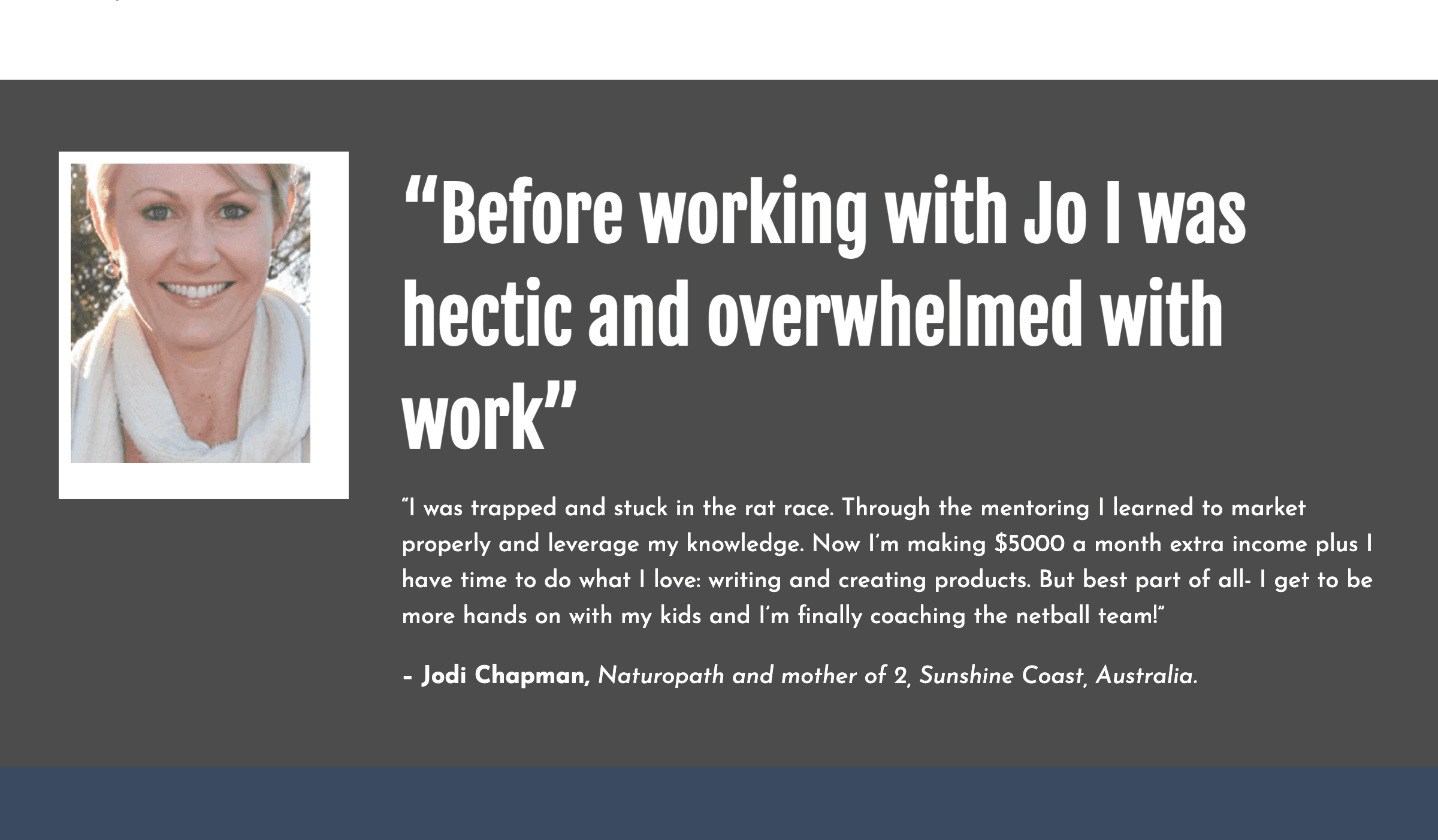
Testimonial on Joanna Martin's website - Joanna uses just one powerful client testimonial on her coaching home page: It starts with pain points many can relate to and uses a headline to highlight key information.
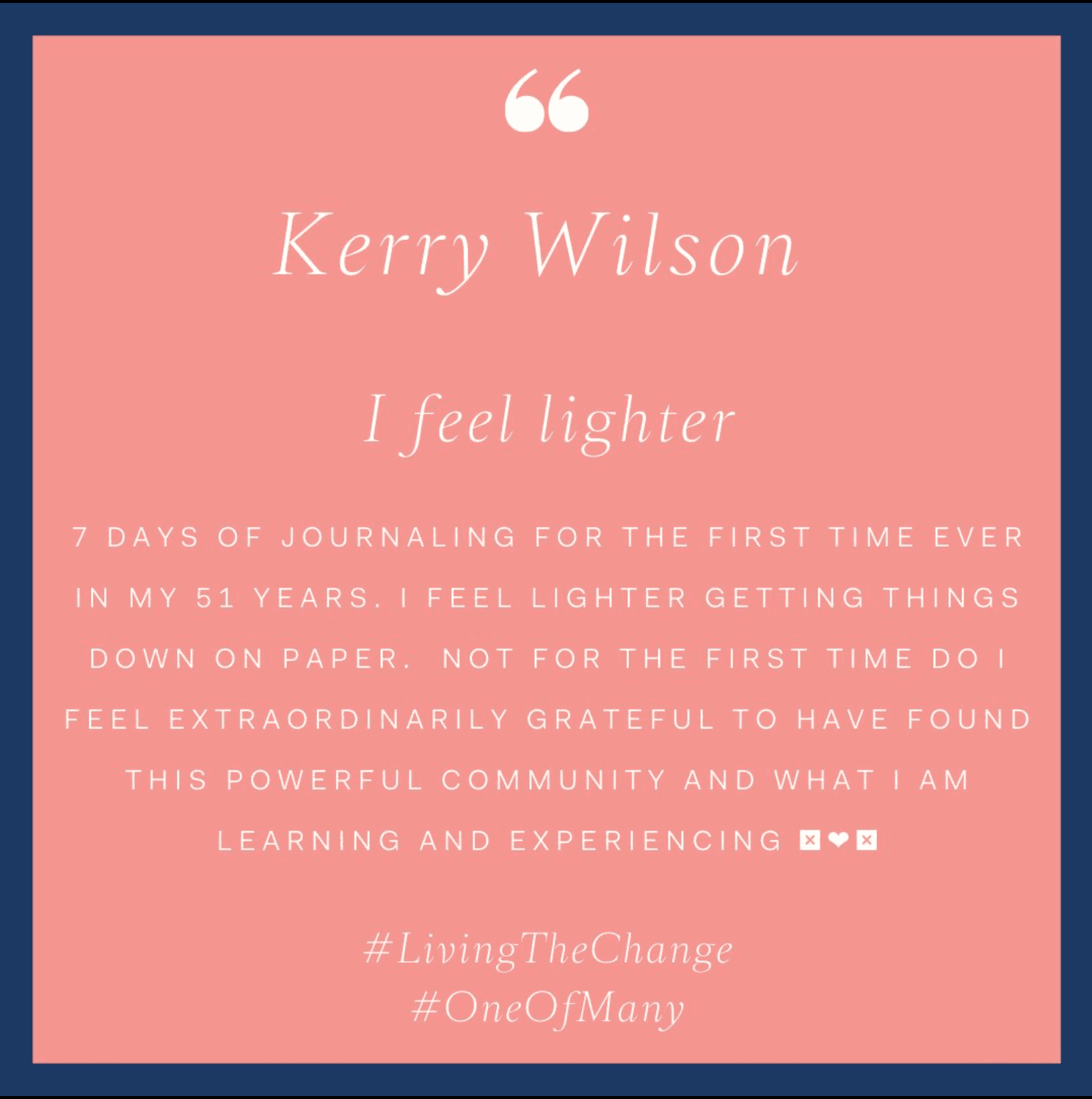
Client testimonial on Facebook - This is another excellent example of a great designed testimonial shared on social media. Again, we can notice a headline ("I feel lighter") that immediately grabs the reader's attention.
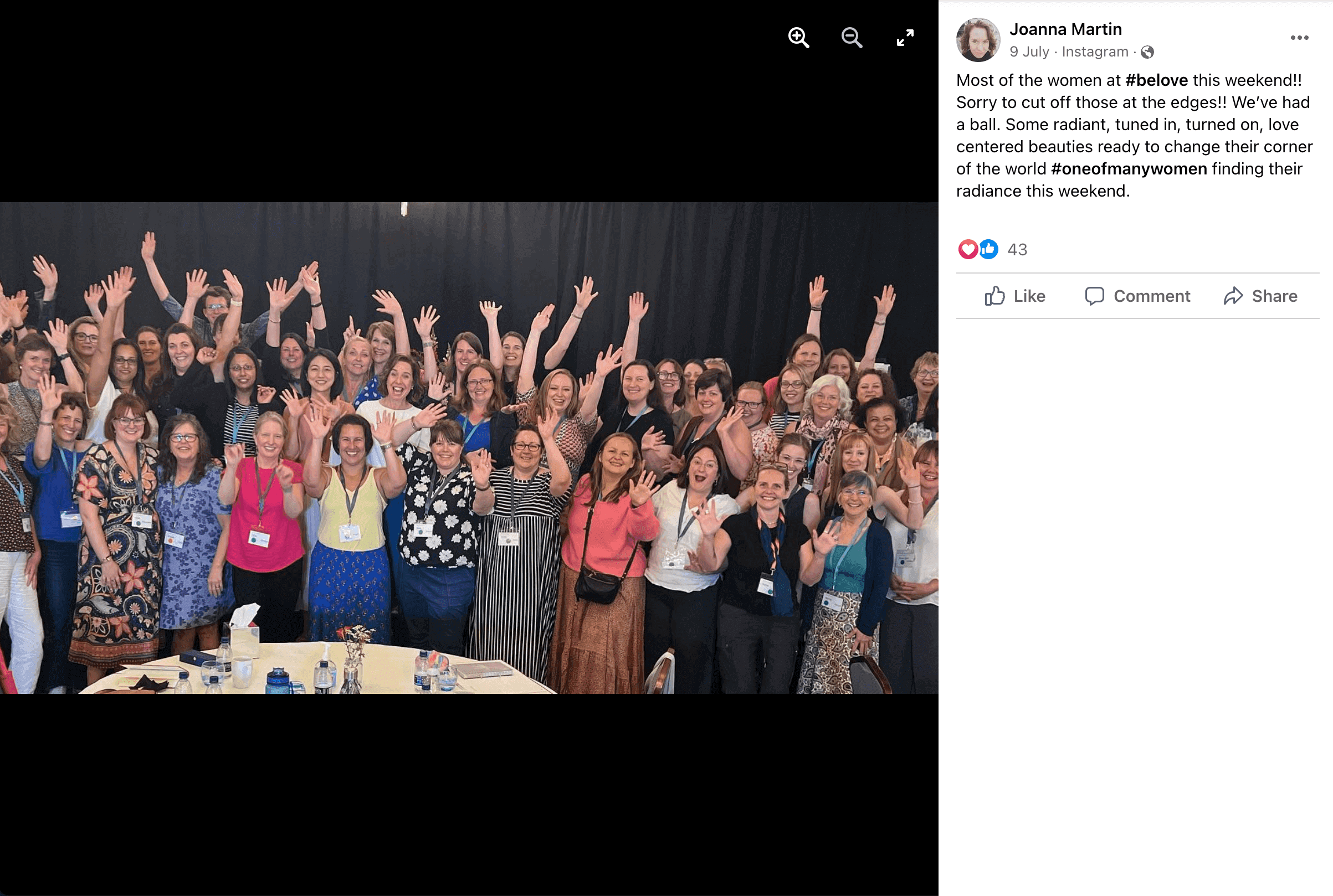
Group photo on Facebook - Joanna coaches individuals and organizations. Taking group photos after an event is not only a fantastic way to bond with participants but also triggers social proof when shared online.
Why should you collect testimonials?
Simply put, collecting coaching testimonials and using them across your marketing channels means more money in your pocket. Numerous case studies show how businesses have increased their conversion rate by only adding one or more testimonials to their website.
Just look at the following example: Numerologist, a service that provides astrology advice online, has seen an 83.8% increase in orders after including testimonials in their sales funnel. That's incredible.
Why are coaching testimonials so effective?
It's because of social proof, a psychological phenomenon that is based on multiple cognitive biases we humans have. It basically means that we tend to copy others when we're unsure of how to behave correctly. This natural desire to fit in with others helped us survive back when we still lived in caves.
In contrast to marketing pitches, coaching testimonials come in as an unbiased voice from real clients, which triggers social proof and establishes trust in your coaching business.
Where to use coaching testimonials
There's no doubt that testimonials can be powerful tools to help promote your coaching business. But where should you use them? Here are a few ideas:
1. On social media
Attract more coaching clients by sharing success stories on your social media channels. However, make sure to choose testimonials that are relevant to your target audience and speak to your ability to deliver results.
- Publish testimonial posts - Many coaches will include testimonials on their websites, but not many will share them on social media. So instead, publish posts featuring happy clients saying great things about your coaching service on Instagram, Facebook, or LinkedIn to increase your trustworthiness and credibility.
- Make a client spotlight – A nifty strategy to leverage social proof without actual testimonials is to shine the spotlight on your clients who successfully finished your coaching program. Congratulate them publicly in a social media post and tell their story – of course, with their permission. The best part: You can choose the wording yourself, and the client will most likely re-post it, which leads to more eyes on your coaching business.
2. On your website
If there's one takeaway you should remember, it is this: Place your client testimonials at all friction points. Visitors who land on your coaching website rarely open a dedicated testimonial page. They can smell the marketing gimmick. So instead, include testimonials on every page that can impact your conversion rate.
- On your pricing page – Some coaches are transparent on their website with how much they charge, while others aren't. And that's totally fine. However, if you have a pricing page, you need a client testimonial that tells "how every penny was worth it" (any other strong testimonial will do it, too). Otherwise, you're leaving money on the table.
- Next to lead magnets – Chances are, you're offering freebies on your coaching website in exchange for an email address. Boost the conversion by using a short, 3-6 word client quote that underlies the value of that specific freebie or any endorsement for your coaching program.
- On your home page - The most typical but essential placement for client testimonials is the start page of your coaching website. It should give a complete insight into what you offer and include testimonials covering pain points and objections others might have the same.
3. In online advertising
Take your coaching testimonials and transform them into your most potent marketing ads. Combined with highly targeted ad audiences, testimonial advertising can become one of your most powerful marketing strategies.
-
In banner ads - Include a smiling picture of a happy customer accompanied by a short quote, and see how your ad campaign comes to life.
-
In text ads - Testimonials are thrilling and can be excellent resources for all your marketing efforts, even for text ads. Select the most impactful testimonial part (a few words), and use it in your ad copy to draw extra attention.
4. In print marketing materials
While digital marketing seems to dominate, offline marketing is definitely not dead and is still highly effective for coaching businesses. Especially now that everyone is going paperless, something like a well-crafted brochure can be a novelty to stand out from the competition.
-
Highlight a success story in your brochure – Brochures or booklets are a fantastic way to showcase your coaching program and shine the spotlight on one or more happy clients.
-
Testimonial on your business cards - Networking can happen anywhere. So, why not add a short and impactful testimonial on your business card?
How to get coaching testimonials
We have just seen where you can use testimonials to show potential clients that you are an expert in your field. But how do you go about getting them?
One of the best ways to collect testimonials is to simply ask your clients for general feedback after a coaching session. If you deliver the results your clients expect from you, they will be happy to tell you what they like about your program. You just respond with, "that would make a fantastic testimonial", and ask the client if you can use their words as a testimonial. Job done!
Also, be ready to use the above approach when your client spontaneously says something positive in a casual conversation.
Another way, especially when preparing a testimonial video, is to ask your coaching clients directly for testimonials with specific questions. This allows you to steer the direction and get the best results.
Whichever method you choose, make sure to get permission from your clients before using their testimonials in your marketing materials.
Checklist for great coaching testimonials
Any testimonial is better than nothing, but if you really want to boost your coaching business, make sure to ask yourself the following questions:
- Is the testimonial concise? – A coaching testimonial is not a case study, so we're speaking here about 15-50 words depending on the design and placement of the testimonial. Anything longer will unlikely be read.
- Is the testimonial specific? – Something vague like "The coaching was great" will simply not cut it. The more details a testimonial can provide, the more effective it will be, especially if it includes numbers.
- Does the testimonial include the client's details? – Showing the person's picture and name is a must-have to make the testimonial more authentic.
Over to you
Wherever you use them, testimonials can be a powerful way to promote your coaching business and gain credibility. So don't be afraid to approach them actively and get creative with your coaching testimonials.
